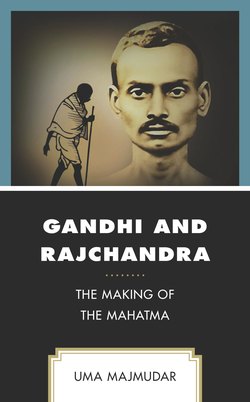Читать книгу Gandhi and Rajchandra - Uma Majmudar - Страница 15
На сайте Литреса книга снята с продажи.
A Comparative Study of the Bhagavad Gita
and the Bible
ОглавлениеWhile reading the Gita along with his theosophist friends, Gandhi said (GATB, 90) that what made a deep impression on him were these verses from the Samkhya Yoga (Gita, Ch. 2: 62–63): “If one ponders on the objects of the senses, there springs attraction; from attraction grows desire; desire flames to fierce passion, passion breeds recklessness, and then the memory—all betrayed.” This particular stanza appealed to Gandhi as both logically and psychologically sound. This description of a chain-like human reaction starting with the sense attraction, growing into desire, escalating to passion and from passion to heedlessness, and resulting ultimately in loss of discretion and memory—made such a powerful impact on his mind, said Gandhi, “that the verses still ring in my ears” (GATB, Ibid.).
The new religious enthusiast now began to read the Bible—both the Old and the New Testaments—and he started making his own reflections and comparisons. “I disliked the Old Testament,” said Gandhi, “but the New Testament left a positive impression on me, especially the Sermon on the Mount went straight to my heart.” He was particularly moved by these words of Christ:
But I say unto you, that you resist not evil; But whosoever shall smite thee on your right cheek, turn to him the other also. And if any man take away thy coat, let him have thy cloak too (GATB, 92).
Gandhi’s impressionable mind began to draw parallels and to unify the teachings of the Gita, The Light of Asia, and the Sermon on the Mount. To him, “renunciation” stood out as the principal message of the Gita—which much later, he would translate into Gujarati, as the Anasaktiyoga (“ana” meaning not or non, and “asakti” meaning attachment), or “The Yoga of Non-attachment.” He was also profoundly moved by Jesus’s sermon of kindness, even to one’s offender or enemy, and his preaching as well as practice of nonviolence and forgiveness in the face of violence and hostility. What Jesus preached, Gandhi compared to his own Gujarati saint poet Shamal Bhatt’s verse: “For a bowl of water, give a goodly meal.” He also remembered another Gujarati saint-poet’s “chhapa” (pithy, effective verse), which translated in English would mean “who is more virtuous? One who does good in return of good, or one who does good to all—even to those who hurt, speak ill or take away?” (Majmudar, 2005, 86).
Until now, Mohandas Gandhi, by his own admission, was not only a religious ignoramus, but almost “on the brink of atheism, not because of lack of faith, but because his faith was not yet nourished by convincing moral meaning” (Ibid., 87). I would like to add one more reason: Gandhi’s religious skepticism then was not due to religious ignorance alone, but it was for not having encountered any living exemplars of faith. At this point of his doubt or disbelief, Gandhi met Annie Besant and read her book Why I Became a Theosophist! Besant told the story of her own transformation from atheism to theism, which, said Gandhi, “helped me cross the Sahara of atheism” (GATB, 92). Just as Henry Salt’s book convinced Gandhi of the virtues of vegetarianism, Besant’s book not only removed Gandhi’s religious skepticism, but it also kindled his interest in learning more and more about his own as well as other religions.
Once Gandhi tasted a piece of the delicious “religious pie,” he could not stop. Developing a voracious appetite, he kept consuming books after books, especially about the lives of saints and religious teachers who not only preached but practiced religion in their lives—like Jesus Christ on the Cross, and Mohammed—the Muslim prophet—whose life of piety, bravery, and austerity also made a profound impact on Gandhi.
Besides the vegetarians and theosophists, Gandhi had also befriended some of the deeply pious Christians, Quakers, Puritans, and ethicists who greatly contributed to his intellectual, moral, and religious growth during his stay in London. They helped wipe out his earlier negative memories of the proselytizing Christian missionaries he had met during his boyhood in India. From his first positive experience of Christianity from such devout Christian friends in England, Gandhi would remain in touch with most of them through the end.
